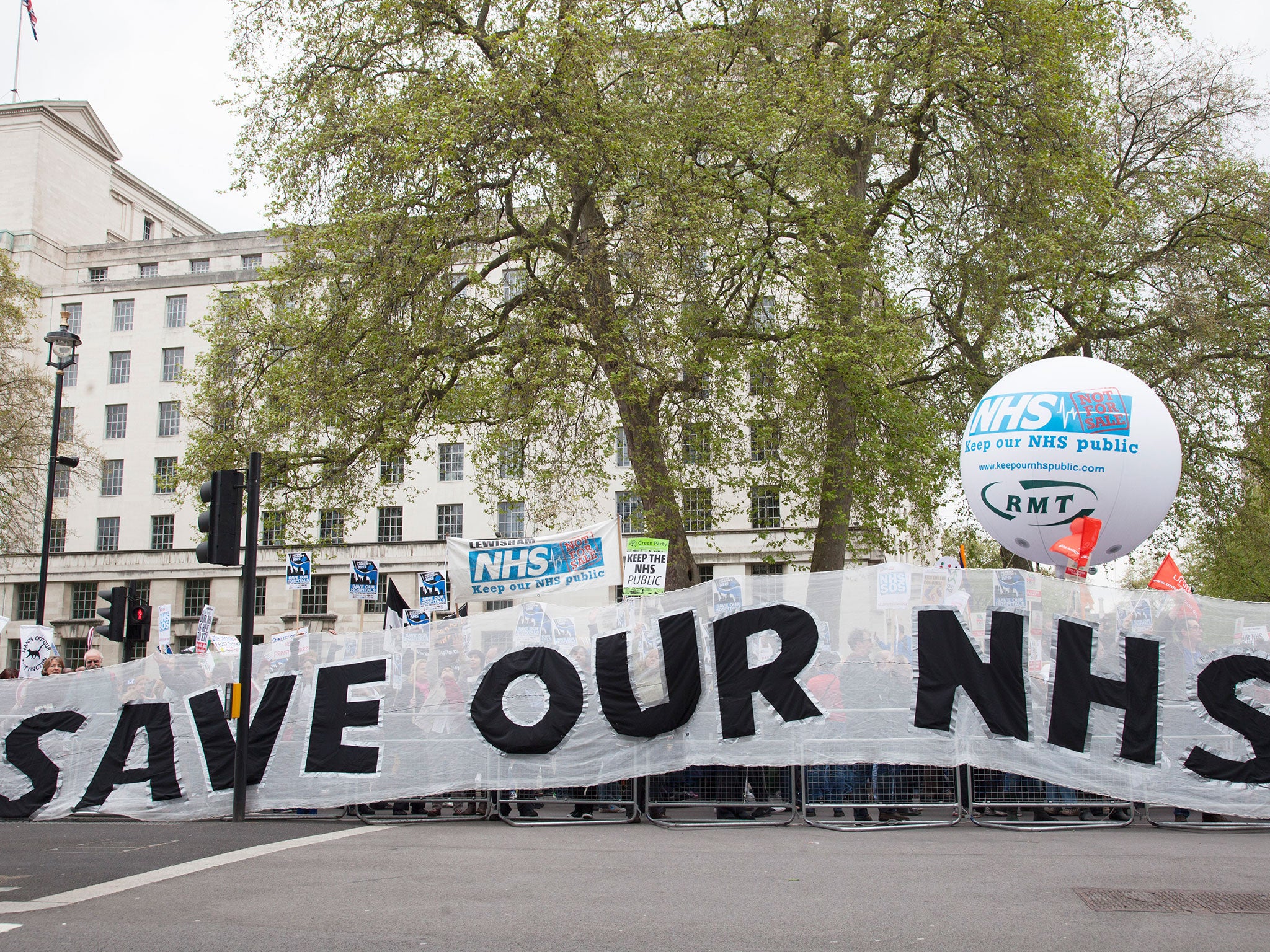Government 'has no convincing plan' to save NHS from funding 'black hole', MPs warn
MPs warn 'long-term' damage has been done by 'unrealistic' savings targets imposed on struggling hospitals

The Government has “no convincing plan” to save the NHS from a funding “black hole” that poses a serious risk to the services patients’ receive, MPs have warned.
In a damning assessment of the Government’s management of the health service’s finances, the influential Public Accounts Committee (PAC) said that “long-term damage” had been done by “unrealistic” savings targets meted out to struggling hospitals.
MPs also raised concerns over the NHS’s ability to cut £22bn from its running costs by 2020 – a key target – because data used to estimate where savings might be made was “seriously flawed”.
NHS trusts – the organisations that run hospitals and other services – are facing a combined deficit of up to £2.5bn when the current financial year ends. The deficit figure has increased rapidly in the last three years, as the cost of providing care for an ageing population outstrips Government funding increases, which have been at an historically low rate.
Meg Hillier, chair of the PAC, said that hospitals were at “crisis point”, while Dr Mark Porter, chair of doctors’ union the British Medical Association, which is embroiled in a bitter industrial dispute with the Government, said the NHS was sliding into “financial ruin”.

The PAC, which heard evidence from senior officials at the Department of Health, NHS England and regulator NHS Improvement, concluded that the current trend in finances was not sustainable and criticised Government for doing “too little to support trusts”.
While praising recent attempts to crack down on high spending on rip-off staffing agencies, the committee said that the costs were being incurred in the first place because of poor workforce planning and a shortage of permanent staff.
Ms Hillier said that the Government’s “approach to planning is a serious and recurring concern”.
“There is a long way to go before the taxpayer will be convinced there is a workable an properly costed plan to secure the future of our health service,” she said.
A DH spokesperson acknowledged that “some parts of the NHS” were under pressure but disputed claims it had been slow to act.
“We’re committed to the NHS and are investing £10 billion so it can implement its own plan for the future – including an extra £4 billion next year to help the NHS respond to the growing demand on services,” the spokesperson said.
However, Dr Porter said there was a “a complete mismatch” between the government’s pledges and “the reality on the ground” and claimed some hospitals were “struggling to deliver basic care”.
“The chaos in workforce planning is exacerbating these pressures, with staff shortages in many key specialities resulting in far too much being spent on temporary workers,” he said.
Join our commenting forum
Join thought-provoking conversations, follow other Independent readers and see their replies
Comments
Bookmark popover
Removed from bookmarks